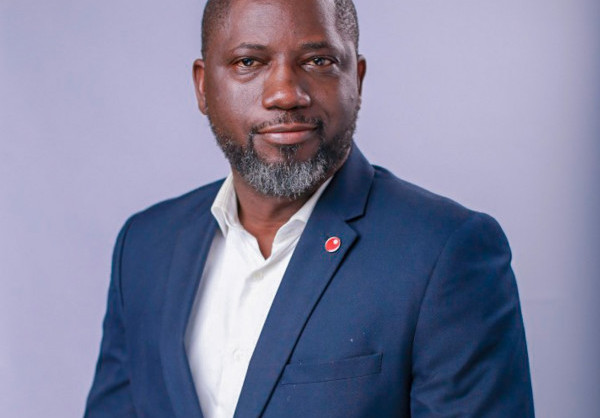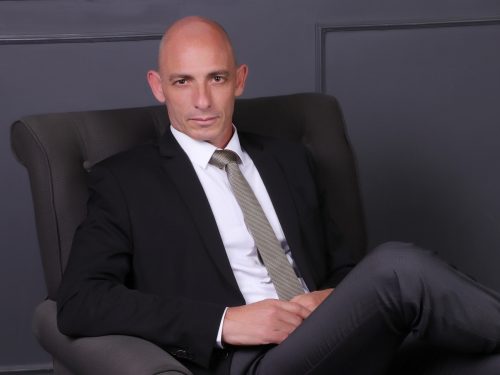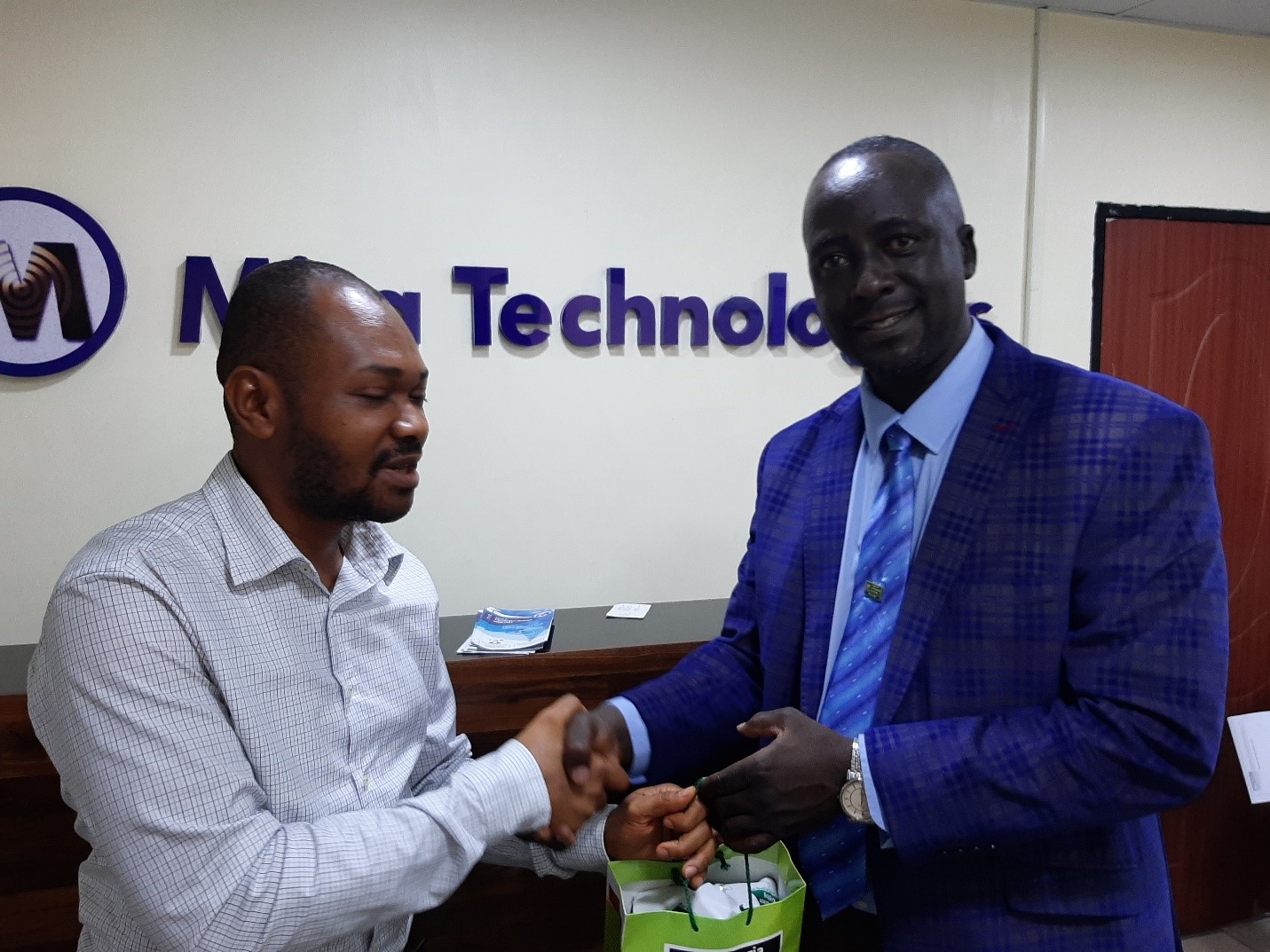There is no doubt the wide-reaching impact that the Covid 19 pandemic has had on individuals, families, businesses, the global economy and social structure. However, history continues to demonstrate that the human populace is extremely adaptive and will eventually reach some sort of recovery from this pandemic. This recovery will not be “everything back to normal pre-COVID-19 days”. It will be a new way of living and working and social interacting. Post Covid 19 recovery will be defined by lessons learned and prioritization of the most important aspects of human motivations. Abraham Maslow demonstrated this in his theory of “Hierarchy of Needs”. At the bottom of the pyramid are the needs of food, water, warmth, and rest. Moving up a left, is safety and security. Moving upwards are the needs of belonging, relationships, friends. At the higher levels of motivation, we have needs of feeling of accomplishment, prestige and above all, self-actualization.
Being at the top levels of the pyramid is a luxury some are fortunate to have. During the pandemic, these people rapidly dropped a level or even several levels from feeling “at the top of their game” to finding that they cannot pay rent and have lost their source of income. Overnight, priorities shifted from what we considered normal to dire. We were used to hanging out with friends at the bar debating on if the new car from Corvette was better than a Porsche. Now we are struggling with isolation without friends and families, worrying about the overdue rent, and the rapidly dwindling bank account that may only last a month or even a couple weeks. The thought of going from not worrying about food to worrying if next week hunger and starvation will happen, is a scary one. Furthermore, the imaginative future visuals of civil unrest and potential violence from people suffering and acting out of desperation.
According to the World Bank, there are 734 million people living in poverty making less than $1.90 per day, which is about 10% of the global population. If the threshold was $5 per day, the number will be in the billions of people. These people in poverty are not spread out evenly throughout our planet, in many countries, the levels of poverty reach 30%, and some as high as 45%. The pandemic has pushed the global population down two levels. The low-income population already living in the bottom two levels and have nowhere else to go except dire life threatening hardship and must fight day and night to stay there on the bottom two levels.
With this being said, if you are one of the lucky ones at the higher levels, and have fallen a level or two, you are still above the newly created extreme and dire levels. You may think your new found concerns about food and safety are dire, please remember that you are maintaining yourself at multiple levels and can and must become creative in helping others. Self actualization can now be attained by sacrifices in an effort to help others in need, backup rainy day funds will go a long way to save the lives of families for several days.
I live in Nigeria, where income is one the most disparate of the world with 33% of the population living in poverty. Am I afraid of the pandemic? Definitely yes! I don’t know when and how this will end, but I do make it an effort to help others during a crisis. I have bought food packs for people that have reached out for help, I have also cooked some basic meals to distribute to people living in my neighbourhood . I know it’s not enough, but if it everyone in a similar situation as myself steps up and does the same, then we will be able to hold up the under privileged until this storm passes. A small contribution of basic meals to 5, 10, or even 100 people will go a very long way. Many times, being kind and generous goes “unthanked” and without reward. Don’t worry. If only one person out of the 100 that you have helped returns the favor to someone else, then kindness will spread faster than a virus and will “infect” a billion people in no time.
Helping others and ourselves can only be effective if we are armed with the knowledge of what the future will bring. Although there are no clear answers or timelines of what and when the pandemic will be over, what we can be sure of is that the return to normalcy will be slow and gradual. Also, many aspects of the “normal” we have been used to will change for the long term. To assist with understanding what may change, I have come up with several predictions of life post COVID-19.
1) Education
The distinction between and school and home will blur. Many academic organizations will realize that a bulk of the learning can happen online. As a result, campuses will become less crowded, thus being able to support more students. There will be “odd / even” days where depending on the day of the week, you may or may not be required to physically be on campus. This will alleviate the fear of not being able to maintain enough distance between each student. I call this “thinning out” and will refer to the term frequently below.
2) Thinning out of pre-COVID-19 dense areas
We will begin to see a thinning out policy for any place of where people typically were in close physical proximity of. Several methods will be used. One method it to split a bunch of people into groups, e.g. Group A, Group B, Group C, or even “Odd” and “Even”. Then depending on the day or policy, only allow a certain group to come out. The second method is rate limiting the flow of people, so existing venues with a large capacity will reduce their capacity by 50% or even 80% so that when people are at the venue, they will have ample physical distance between them.
a) No movie theatres, arcades — As a place where more than 50 people are organized almost in arms reach of each other, these venues were the first to stop operating due to social distancing requirements. The movie theater of the future will shift to online world. The online world will have a solution where multiple people can watch the same film while having a social interaction of making comments and remarks about the film. For the people finding change difficult, and the for theaters taking their last “dying gasp” these theaters will be re-purposed so that a screen with a normal capacity of 400 will allow only 50 people spread evenly to maximize social distancing. Very quickly people will realize that what good is going to a theater without the social aspect. Generation Y and Generation Z are already consuming most of their content on computer, tablets and phones.
b) Restaurants — Will need to pivot their business model to a delivery service and for their existing seats, once lock down orders are eased, these restaurants will have to employ thinning out measures of having people physically distanced from each other. Very quickly people will realize that the value of going to a restaurant was social in nature and not being able to converse with people and friends at restaurants will become a deterrent of going. Some may only separate different groups of people. Some restaurants will start online dining areas using applications like Zoom, and Microsoft Teams. Patrons can order online and join an online room while having their meals. This will bring a whole new type of experience to food. Some restaurant online rooms will be so popular that they will need to control who joins the rooms.
c) Airplanes — More than 50% of existing airlines will collapse this year. Airlines which survive will increase their prices by up to 2X and will now employ drastic measures of sanitization. Sanitization will be a differentiator even more valued than loyalty miles, or oven food on the plane. Economy class seats will have at least one empty seat between each seat. Airlines will retrofit HEPA filters throughout the plane or retrofit hospital grade air filtering systems for the entire aircraft. New certification bodies will emerge which can set standards for hygiene and sanitization, and period testing where passengers and transparently see the results of such testing.
d) Other public transit — These all will follow in lines with the Airline industry. Queuing for boarding and disembarking will follow a much more orderly process to maximize physical distancing. There will be increased technology based screening for passengers boarding and increased automation to prevent touching of buttons. There will be a massive increase on the use of facial recognition systems to automate personal preferences and choices.
3) Healthcare, Health Habits and Changes
a) Obesity and alcoholism becomes a problem — Lifestyles will change and many people will become used to the sedentary lifestyles of isolation. Those without prior exercise discipline will gain weight and be more prone to hypertension and other cardiovascular diseases.
b) Everyone who can get COVID will get it by mid June 2020 — at the current trajectory exponential growth rate of infections, close to 40% of the global population will have been infected symptomatically or asymptomatically by mid June. At a worst case scenario without measures to slow the spread, by June, the growth will begin to naturally taper down, and potential infection hosts will have developed an immunity for the current strain of COVID-19 through past infection.
c) New strains of viruses will emerge and some people and governments will have to just continue with daily life instead of a another multi month lock down, and just deal with the potential impacts of infection as it happens.
d) Telemedicine huge advances, remote diagnoses — Patient to doctor ratios will increase out of necessity because of the lack of doctors. The shortage of doctors forces doctors to operate in a more efficient method. Experienced doctors will be able to share their knowledge and diagnostic capability to less experienced doctors through remote diagnostics over the Internet. A new class of medical professional somewhere between a doctor and nurse who has only specific knowledge on handling only specific infection related cases will emerge to handle the growing need for doctors. These new doctors will be trained rapidly from existing nurses. Remote diagnostic medical sensor companies will emerge and remote vital signs sensor hardware will become a norm for doctors providing remote diagnostics. Within 2 years 75% of most doctor interactions will occur through virtual consultations. Internet connected Vital sign sensors will become standards in every home, like bandages and blood pressure meters, and will cost less than $100.
e) Pharmaceutical industry will streamline drug testing/development cycle — Virus mutation rates will increase and although COVID-19 will have a vaccine, new rapidly emerging strains of the virus will occur faster than vaccines and treatments can be discovered. Pharma companies will completely change their methods for developing and testing new drugs and vaccines by using less human trials and more Artificial based deep learning methods to validate and test drug candidates to reduce the time to market. Realtime feedback from patients who have been administered the new drugs will immediately feedback into the AI algorithms to make minute manufacturing and formulation changes to adapt to a changing situation.
4) Social Interaction
The way we normally accustom friendship and leadership through physical touch will change. Handshaking will become a taboo, friendly taps on the shoulders and hugs will be deemed “insensitive” and “unhygienic”. Kissing will become a taboo equivalent of unprotected sex during the HIV / AIDS era.
a) Face masks will become the norm for many people in most countries. Masks are worn in weather conditions and by the young and old and even celebrities. Many people will enjoy the comforting feeling of being enclosed with a mask. In the age of facial recognition through cameras, traditional masks will prevent facial recognition, new nano materials will be used to create effective masks which allow a new generation of security cameras to “see through” these masks and continue to perform the intended facial recognition. People using legacy masks may be denied access to sensitive areas. Mask technology will advance to use nano hypoallergenic materials.
b) New ways of being social without physical proximity — We are already seeing social dynamics and cultures develop in the online world. Friendships are being made online. Online dating is the norm now. The next step humanity will take will be where human contact and physical proximity will be limited to only the extremely close social partners and will become a norm to be physically close to only a single person exclusively.
c) New culture developed around new social applications. The endorphins produced today by social interaction will be replaced and even eclipsed by the endorphins produced in the future by software applications which incorporate game dynamics. People will prefer the higher intensity endorphins from games and online social interactions rather than the “real thing”
d) Handshaking completely disappears. Western cultures adopt Asian “bowing” as a more hygienic means of greeting people in person. Some people “too cool” for bowing because of the stigma invent new non contact methods of greetings.
e) Larger disparity in knowledge — The population bifurcates into a group which uses the down time to educate and get smarter researching new knowledge on the Internet, while other group abstains from the pressures from daily routines and learning and begins to become accustomed to the sedentary lifestyle. Rich becomes associated with motivated and Poor becomes associated with unmotivated, the correlation becomes stronger over the years.
5) Focus on Biosecurity
Physical security is normal now, Cybersecurity is already a new concept to most, yet gathering constant coverage in the news. The next generation security is Bio-Security, typically reserved for commercial operations such as farms and laboratories, bio-security measures will make its way into domestic households and businesses.
a) New wave of biosecurity companies — Companies will emerge specializing in implementing methods and technologies for increasing biosecurity. Real time analysis of antibodies and even DNA will become possible for companies and civilians, at a cost so minor that bio-security checking at ingress and egress points at businesses and residences will become normal just like it is normal to have internet at every home.
i) Cameras intelligence — Cameras combined with Deep Learning based computer vision, will be able to identify potentially risky behaviors such as coughing and sneezing and immediately alert enforcement to remedy the situation. Coughing while outside and without a mask will be considered highly inconsiderate, the equivalent of urinating on a public wall.
ii) Intelligence gathered through cameras and smartphones will be used to track infected people, contacts of infected people and people demonstrating high risk behavior. This data will be visualized on real time heat maps of every major city indicating high, medium, low risk areas. Wearables are used to notify people when they are moving into an area with higher risk than their current location.
b) Businesses such as restaurants and hotels will be rated based on their adherence to strict biosecurity measures.
6) Food and Production
a) Food shortage — Within the next 5 years, there is a risk of food shortage because many cross border trade in food will be reduced. Many countries will need to grow their own food, and countries with a net import of food will have a shortage. New technologies in food production will need to be quickly implemented. Smart Agriculture technologies such as climate resistant agriculture, growth in green house based agriculture and indoor multi level hydroponics and aquaponics systems. If food supply does not increase with the demand of the population, large scale starvation will occur and even reduction of a country’s population thus its relevance.
b) Food safety / biosecurity — Restaurants will not only have a food safety score, but also a bio-security score, which is determined by their existing food preparation processes. Restaurants which cannot offer proof of a high level of bio-security will not be able to continue to successfully compete with other who do. At the highest levels of bio-security, food will be prepared by mainly robots and minimal human staff, who will live and work at the restaurant in and repeating cycles of work, isolation, rest , where each cycle can last up to 6 months.
c) Robotic farming — To reduce the risk of infection, people will prefer fruits and vegetables farmed by machines and robots instead of by humans. The price of human farmed products will be less than half of robotically produced fruits and vegetables since they will be less desirable due to infection risk.
d) “Ghost kitchen” businesses will grow — Ghost kitchens are large warehouses and buildings operating in a shared space concept, similar to a shared serviced office. A company in a shared office can start small, and scale large overnight. Since many sit in restaurants will wane in popularity due to biosecurity concerns, many existing restaurants and new ones will operate in a “take out only” fashion. Currently, there may only be 3 or 4 options for ordering a pizza, but with Ghost kitchens, these “virtual restaurants” will have dozens, if not hundreds of choices of selecting a pizza take out restaurants. Many of these restaurants will operate in the same shared “ghost kitchen” and may even be owned by the same owner. The price of take out food will decrease by more than 30% as these “Ghost kitchens” will not have as much overhead and can handle a larger amount of orders.
e) Smoking / Vaping — More and more people will wear face masks in public and will find it difficult to smoke while wearing a mask as the mask needs to be removed or moved to make way of inserting a cigarette or vape into the mouth. Knowing that touching a mask is a dangerous action to take when trying to prevent virus, these people will opt for an alternate way of stimulation, and will opt for chewing tobacco such as Snus used in the Nordic countries.
7) Energy
The shift of energy requirements will change globally. It will change from fossil fuel based to renewable energy based, more specifically the energy demand will be in the format of clean electricity and less of CO2 emitting combustion. Internal Combustion Engines (ICE) in cars will be used less. Many people have realized that it actually is possible to not use a car so much, and much of what was done using a car, such as commuting to work, can now be done remotely. Global fortunes have been spent on the projects focused on the production of oil, now that the demand of oil is significantly less, the price of oil can only drop, thus putting many oil producers out of business. Renewable and scalable sources of energy such as solar, wind, hydro electric will be consumed more. Many homes will be able to produce up to 50% of their peak load and during off peak times, they will be able to feed excess power back into the grid. This is not new, and is happening now, but what is new is the rapidly decreasing price of solar panels and batteries which makes the technology available to more and more people. In areas where grid power is intermittent, Solar and wind power will become the primary method of generating electricity and will allow for a fully autonomous energy generation unit where self generation provides 100% of the needed power in a home and also enough to operate an electric vehicle as the mode of transportation.
8) Transportation
Depending on the realizable levels of hygiene, there may be more or less cars on the road. Many people will be adverse to using ride sharing unless 1) it is fully autonomous 2) sanitation of the interior is automated or the driver compartment is completed sealed off from the passenger. These two challenges can be overcome. If not overcome, roadways will increase in congestion as people will want to ride in their dedicated vehicles. Many people now are purchasing electric vehicles due to cost savings from not having to purchase expensive fuel. If fuel prices decrease due to a lack of demand, there may be a resurgence in ICE vehicles, as the operating cost will be very minimal.
9) Sports and Outdoor Activities
This industry will experience a big change. Spectator sports such as basketball, football will prevent large numbers of fans to view the game in person. Viewing of games on TV and via the Internet will become the norm. Parks and beaches will become in high demand, and many parks and places of public gatherings will institute a “thinning out”. The supply of outdoor recreation areas will decrease and the demand will increase. Municipalities will convert these public places to revenue generating sources, similar to parking meters in congested cities. Contact team sports such as football, basketball, will decrease in popularity, giving rise to individual sports such as golf, and also the rapidly rising popularity of e-Sports such as multiuser online games. In e-Sports, hundreds and millions of players can interact in a virtual world without physical contact.
10) Real Estate Property and Migration
The population which harnesses and adapts to these new changes in society will grow and prosper, and unfortunately, the remainder will not. Crime and poverty will increase and a dystopian society may emerge from poverty. Many people will move away from high density large cities into rural areas to reduce the risk of being in close contact with too many people. As the demand for real estate will reduce in urban areas, the price of urban real estate will drop. Popular migration destinations will be areas of nice weather and plentiful beaches such as Hawaii.
11) Workplace
Only staff which have cleared bio-security requirements will be able to work from the office. Others will have to work remotely. Companies will realize that many staff who were seemingly “highly productive” pre-COVID-19 were mainly absent during COVID-19 and subsequently not required thus terminated. Rented spaced used by offices will shrink drastically. Factories will maintain their rental footprint.
12) Drones become more popular
Regulatory management of drones accelerates and makes many things feasible. More drones are being used to replace delivery services for smaller items. Some countries will have dedicated drone corridors which do not need to be coordinated with general or commercial aviation. Drones are not only used for deliveries, but for security, with AI based deep learning camera to surveil cities as well as private drones to surveil private businesses and residences. The game changer is the AI based computer vision on the drone which allows it to make decisions on how to react to various security events. Drones capable of carrying passengers will be used to move people rapidly and efficiently from their rural homes to other locations as an alternative to cars.
13) Communication Technology
Remote working and a levelling of population density away from urban areas and into sub urban and rural areas will increase the need for ubiquitous high-speed broadband. Mass deployments of fiber optic cables will happen into areas which were previously commercially not viable. New high-speed satellite based Low Earth Orbit (LEO) constellations such as SpaceX’s Starlink will beam high speed internet to every corner of the planet. This will be useful for areas waiting for fiber to be deployed. The use of video chat / conference puts higher quality requirements for these calls. Users now demand much higher audio fidelity and video quality. Multi megapixel, Multi screen video calls with virtual / augmented reality become the norm. When multiple people are on a video call, the person on the right speaks, their audio is heard from the right, these audio technologies such as virtual direction audio will become common. Many business and homes will have permanent “windows” which are screens providing a 24×7 video conference feed to another location thousands of kilometers away. This will allow for a father working on one side of the world, have a window to his family on the other side of the world, to bridge the physical distance virtually. Although people will have to overcome the feeling of being surveilled. New types of etiquette from video conferencing will find its way into the real life.
14) Environment
Less fossil fuel consumption means less CO2 emissions damaging the environment. Leading to cleaner air. During this COVID-19 pandemic, many people noticed a much cleaner air and bluer skies. I have noticed a drastic decrease in micro dust Particulate Matter (PM2.5) decrease from 100 micrograms per cubic meter to less than 6 micrograms per cubic meter in less than a week. A clean environment and clean air will become the norm, and climate activists will have nothing to complain about, and people will stop caring about the climate change as it ceases to be a problem.
15)And Beyond
Lastly, we will realize that the world we live in on Planet Earth is amazing yet very sensitive. Fear of a potentially larger future pandemic will push technologists to advance research on interplanetary and even interstellar travel. Only 21 years ago, the thought of a space station orbiting the earth with people living on it was unreal and borderline ridiculous yet fascinating idea. After 21 years, living in space is a reality and feasible. Now the next step will be to prepare a future “Noah’s Ark” to preserve human kind in the event that a virus overtakes planet earth. Famous future words of the first person (maybe me) leaving planet earth to live on another planet,
“So long planet earth, we have learned a lot from our irreversible mistakes, and now, we have no choice but to start fresh on another planet.” …Yen Choi
Yen Choi
Only staff which have cleared bio-security requirements will be able to work from the office. Others will have to work remotely. Companies will realize that many staff who were seemingly “highly productive” pre-COVID-19 were mainly absent during COVID-19 and subsequently not required thus terminated. Rented spaced used by offices will shrink drastically. Factories will maintain their rental footprint.
















